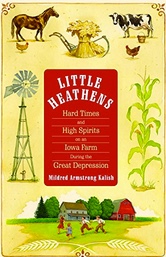I read seven books in October – four
novels, three non-fiction.
Eleanor Oliphant is Completely Fine by Gail Honeyman
Gail Honeyman won Scottish Book Trust’s Next Chapter Award in 2014 (for a first novel for writers over forty).
At the Frankfurt Book Fair there was a bidding war for it and since
publication it has won or been shortlisted for many prestigious awards; film
rights have been bought by Reese Witherspoon.
Eleanor is socially awkward, has a lowly
clerical job and keeps herself – and her history – very much to herself. But
when circumstances force her to interact with her one of her colleagues and
then the wider world, her life gradually changes. Her story (narrated by
herself) unfolds slowly, and it’s not a happy one. But despite everything
Eleanor has no self-pity and there are moments of great humour in the book –
tears and laughter in fact. I enjoyed it very much and it stayed in my mind for
a long time after I finished it.
I saw Nell Stevens at the Edinburgh Book
Festival this year – having been very intrigued by the description of her book
in the programme. Nell, from London, did an intensive Fiction MFA, a
prestigious course at Boston University and (how amazing is this?) that
included funding for the students to live somewhere of their own choosing for
three months in order to concentrate on their writing.
Reasoning that ‘there has never been a
literary novel set in the Falklands’ she went to live on Bleaker Island, where
the only other human inhabitants were a farming couple whose rare time off the
island coincided with Nell’s arrival. The other little issue was that Nell had
to exist on the food supplies she’d brought with her. The novel she planned to
write turned into more of a journal; this book comprises that journal, extracts
from the putative novel plus other writings. I loved her fiction writing and
her descriptions of the ‘end of the world’.
Vinegar Girl by Anne Tyler
This is one of a newish series whereby a
novelist chooses a Shakespeare play from which to write a contemporary novel.
Anne Tyler chose – did you guess? – The
Taming of the Shrew. And, although I expected nothing less from one of my
favourite authors, she has done it most plausibly. Loved it.
by Mildred Armstrong Kalish
Published in 2007, written by a woman who
grew up on her grandparents’ farm. I’m not
sure why I’m drawn to reading about this era but I am. As it says in the blurb,
‘This, however, is not a tale of suffering’ … but is ‘filled with stories of a
family that gave its members a remarkable legacy of kinship, kindness, and
remembered pleasures, and brimming with recipes and how-tos from everything to
catching and skinning a rabbit to homemade skin and hair beautifiers, apple
cream pie … ’ I don’t think I’ll be trying the recipe for ‘head cheese’ though …
Read on Kindle. A very enjoyable YA novel
about a girl visiting her flighty French-exchange student. Part of a series – I’ve
also read Gingerbread and Cupcake.
by Mara Wilson
Have you ever wondered what happened to the
little actress who played Matilda? I
hadn’t particularly but I picked up this book at the Christian Aid book sale
and found out. There are several sad and poignant reasons why Mara Wilson isn’t
a professional actress anymore but she needn’t worry about being unemployed;
her writing is brilliant.
One Bird at a Time: Some Instructions on Writing and Life by Anne Lamott
I love reading books on writing (yes, I
know, displacement activity …) so was pleased to find this at the Christian Aid
Book Sale although I’d never heard of Anne Lamotte, an American novelist and
lecturer on creative writing. I didn’t really get on with it/her though; I
think perhaps there was a culture clash plus I found her rather negative.
But I liked this – a quote made by the
coach of the Jamaican bob-sled team (in the film about them called Cool Runnings) is one she reiterates to
her desperate-to-get-published creative writing students: ‘If you’re not enough
before the gold medal, you won’t be enough with it.’
And I liked the explanation for the title.
Her brother had put off doing his summer project on birds until the night
before school went back. As he slumped at the kitchen table, horrified at the
magnitude of his task, his father comforted him and told him to take it ‘one
bird at a time, son, one bird at a time’.














